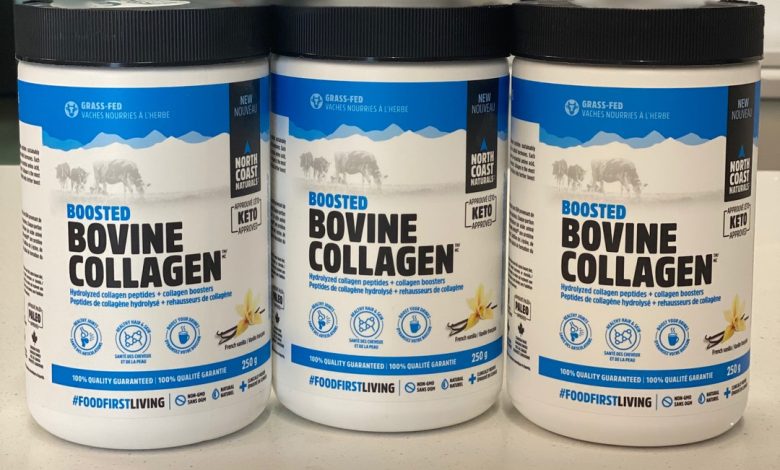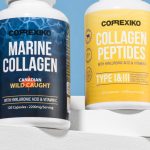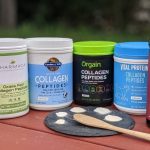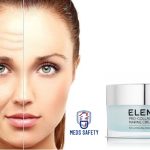What is Bovine Collagen? Unveiling the Beauty and Health Benefits

Collagen is a fundamental protein in the human body, providing structural support to various tissues and contributing to the overall health of skin, bones, joints, and more. While collagen is naturally produced by our bodies, its levels decline with age, leading to visible signs of aging and potential health issues.
In recent years, collagen supplements have gained popularity, with bovine collagen emerging as a prominent source. In this article, we will explore the world of bovine collagen, examining its composition, benefits, uses, and potential considerations.
What is Collagen?
Collagen is the most abundant protein in the human body, constituting about one-third of the total protein content. It plays a crucial role in maintaining the structural integrity of connective tissues, which include skin, bones, cartilage, tendons, and ligaments. Collagen provides strength and elasticity to these tissues, ensuring they function properly and resist damage.
Types of Collagen
There are several types of collagen, with Types I, II, and III being the most prevalent. Type I collagen is primarily found in the skin, tendons, and bones, providing strength and support. Type II is present in cartilage, contributing to its flexibility and resilience. Type III collagen is often found alongside Type I, adding to the structural integrity of skin, blood vessels, and organs.
What is Bovine Collagen?
Bovine collagen is derived from the connective tissues of cows, making it a natural and sustainable source of collagen. The extraction process involves breaking down the collagen-rich tissues, such as skin and bones, into smaller fragments. These fragments are then hydrolyzed, resulting in a more easily digestible and absorbable form of collagen.
Bovine collagen is predominantly Type I collagen, similar to the collagen found in human skin, bones, and tendons. This similarity in composition makes bovine collagen an attractive supplement for those seeking to enhance their own collagen levels.
Beauty Benefits of Bovine Collagen
Beauty Benefits
- Wrinkle Reduction: Collagen is a key component of the skin’s structure, providing firmness and elasticity. As individuals age, collagen production decreases, leading to the formation of wrinkles and fine lines. Bovine collagen supplements may help replenish the skin’s collagen levels, reducing the appearance of wrinkles and promoting a more youthful complexion.
- Hydration: Collagen contributes to the skin’s ability to retain moisture. By enhancing collagen levels through bovine collagen supplementation, individuals may experience improved skin hydration, resulting in a healthier and more radiant appearance.
- Hair and nails health: Collagen is also essential for the health of hair and nails. Bovine collagen’s amino acid profile supports the growth and strength of hair and nails, potentially reducing brittleness and promoting a glossy, vibrant appearance.
Health Benefits of Bovine Collagen
- Joint Health: Osteoarthritis is a common condition characterized by the degeneration of joint cartilage. Bovine collagen, with its Type II collagen content, has been studied for its potential to alleviate joint pain and improve joint function in individuals with osteoarthritis. The collagen may help stimulate the production of new cartilage and reduce inflammation in the joints.
- Bone Health: Collagen is a vital component of bone tissue, providing the framework for mineralization and bone strength. Bovine collagen supplements may contribute to bone health by supporting the production of collagen in the bones, potentially reducing the risk of fractures and promoting overall bone density.
- Gut Health: Collagen is present in the lining of the digestive tract, playing a role in maintaining gut integrity. Some studies suggest that bovine collagen supplementation may help support gut health by promoting the integrity of the intestinal lining, potentially alleviating conditions such as leaky gut syndrome.
Dosage and Timing of Bovine Collagen Supplementation
As with any dietary supplement, determining the optimal dosage and timing is crucial for maximizing benefits. However, it’s important to note that individual requirements may vary based on factors such as age, weight, health status, and specific health goals. To navigate these considerations, seeking guidance from a healthcare professional becomes essential.
1. Consulting Healthcare Professionals for Personalized Guidance
Before incorporating bovine collagen into your routine, consulting with a healthcare professional is crucial. These experts can assess your health history, current conditions, and individual needs to provide personalized recommendations. Dosage recommendations may differ for those aiming to improve joint health, enhance skin elasticity, or address other specific concerns. Additionally, healthcare professionals can consider potential interactions with existing medications and advise on the most suitable timing for supplementation.
2. Understanding Dosage Variability
Bovine collagen supplements are available in various forms, including powders and capsules. The optimal dosage can vary, with some individuals requiring higher or lower amounts based on their unique circumstances. Generally, doses range from 2.5 to 15 grams per day, but healthcare professionals may adjust this based on factors like age, lifestyle, and the desired outcomes.
3. Powder vs. Capsule: Factors Influencing Choice
Bovine collagen supplements often come in powder or capsule form, providing users with options to suit their preferences. The powder form is versatile and easily integrated into daily routines. It can be mixed into beverages, smoothies, or added to recipes such as soups and stews. On the other hand, capsules offer a convenient and taste-free alternative for those who prefer a quick and straightforward method of supplementation.
4. Incorporating Bovine Collagen into Culinary Creations
The powder form of bovine collagen opens up a world of culinary possibilities. Mixing it into beverages like coffee, tea, or smoothies imparts no discernible taste, allowing individuals to enhance their collagen intake without altering the flavor of their favorite drinks. Moreover, its versatility extends to savory dishes, where it can be seamlessly added to soups, stews, and sauces without compromising the taste or texture.
5. Creating Collagen-Boosted Smoothies and Beverages
For those who enjoy starting their day with a nutritious smoothie, incorporating bovine collagen powder can elevate the nutritional content. Blending it with fruits, vegetables, and other preferred ingredients not only enhances the drink’s collagen content but also provides a convenient way to support overall health. Additionally, collagen-infused beverages can be enjoyed at any time of day, making it easier to maintain a consistent supplementation routine.
6. Enhancing Soups and Stews with Bovine Collagen
Soups and stews present another avenue for integrating bovine collagen into daily meals. The powder dissolves easily into hot liquids, ensuring that its benefits are seamlessly infused into the dish. This method allows individuals to fortify their meals with collagen, contributing to joint health while enjoying the warmth and comfort of traditional recipes.
7. Bovine Collagen Capsules: A Convenient Alternative
While the powder form offers culinary versatility, capsules provide a convenient alternative for those who prefer a hassle-free approach to supplementation. Capsules eliminate the need for measuring and mixing, making them ideal for individuals with busy lifestyles or on-the-go routines. This form ensures a precise dosage without any taste considerations, appealing to those who may find the flavorless nature of capsules preferable.
8. Finding the Right Timing for Maximum Efficacy
Determining the optimal timing for bovine collagen supplementation is as crucial as establishing the appropriate dosage. Some individuals may prefer incorporating it into their morning routine, while others find evening consumption more convenient. The choice may also depend on the specific health goals, such as joint support, skin enhancement, or overall well-being. Healthcare professionals can provide guidance on timing based on individual preferences and desired outcomes.
9. Considerations for Absorption and Bioavailability
To maximize the benefits of bovine collagen supplementation, considering factors that affect absorption and bioavailability is essential. Consuming collagen with vitamin C-rich foods or supplements may enhance absorption, as vitamin C plays a key role in collagen synthesis. Additionally, staying hydrated supports overall nutrient absorption, contributing to the effectiveness of the supplement.
10. Monitoring and Adjusting Dosage Over Time
Individual responses to bovine collagen supplementation may vary, and it’s important to monitor any changes in health or well-being. Periodic assessments with healthcare professionals can help adjust the dosage based on evolving needs, ensuring that the supplementation remains aligned with health goals.
Considerations and Precautions when Using Bovine Collagen Supplements
While bovine collagen supplements offer potential benefits for skin, joints, and overall health, it’s important to be mindful of certain considerations and precautions to ensure their safe and effective use.
Allergies and Sensitivities
Individuals with known allergies to beef or bovine products must exercise caution when contemplating the use of bovine collagen supplements. It is essential to carefully read product labels to identify the source of collagen and any potential allergens. If there are concerns about allergic reactions, seeking advice from a healthcare professional becomes paramount.
1. Label Scrutiny: Thoroughly examining product labels is crucial for individuals with known allergies. Manufacturers are required to disclose the source of collagen in their supplements. Opting for products that clearly specify their bovine source and provide detailed ingredient lists helps individuals make informed choices.
2. Consultation with Healthcare Professionals: If there are uncertainties or concerns about potential allergic reactions, seeking guidance from healthcare professionals is imperative. These professionals can assess individual health histories, conduct allergy tests if necessary, and provide personalized recommendations on whether bovine collagen supplementation is safe.
3. Alternative Sources for Collagen: Individuals with beef allergies may explore alternative collagen sources such as marine collagen, which is derived from fish. This allows them to enjoy the benefits of collagen supplementation without the risk of allergic reactions associated with bovine products.
Quality and Purity
Not all bovine collagen supplements are created equal, and variations in the quality and purity of source materials can impact their effectiveness and safety. Therefore, consumers should prioritize products from reputable manufacturers with transparent practices.
1. Source Material Transparency: Reputable manufacturers clearly state the source of their bovine collagen, providing consumers with transparency regarding the origin of the supplement. This information is essential for those concerned about the ethical and sustainable aspects of the production process.
2. Third-Party Testing: Choosing supplements that undergo third-party testing for quality and purity adds an extra layer of assurance. Third-party testing involves independent organizations assessing the product for adherence to quality standards, ensuring that what is stated on the label matches the actual content of the supplement.
3. Manufacturing Process: Understanding the manufacturing process is vital. Reputable manufacturers use controlled and hygienic processes to extract collagen from bovine sources. This helps minimize the risk of contamination and ensures the final product meets quality standards.
4. Avoiding Additives and Fillers: Some collagen supplements may contain unnecessary additives or fillers that can compromise the purity of the product. Opting for supplements with minimal, natural ingredients reduces the risk of adverse reactions and ensures a more wholesome supplementation experience.
Potential Interactions with Medications
Before incorporating bovine collagen supplements into their routine, individuals taking medications should consult with healthcare professionals. Collagen supplementation may interact with certain medications, affecting their absorption or efficacy. A thorough review of the medication list by healthcare professionals can help prevent potential complications.
1. Blood-Thinning Medications: Bovine collagen supplements may have blood-thinning properties. Individuals taking blood-thinning medications, such as warfarin, should consult with healthcare professionals to determine if collagen supplementation is safe and to adjust dosages accordingly.
2. Medications for Autoimmune Disorders: Individuals with autoimmune disorders should exercise caution, as collagen supplementation may stimulate the immune system. Healthcare professionals can assess potential interactions and provide guidance based on individual health conditions.
Adherence to Recommended Dosages
While collagen supplementation offers potential benefits, exceeding recommended dosages may lead to adverse effects. It is essential to adhere to the dosage guidelines provided by healthcare professionals or product labels.
1. Gradual Introduction: Introducing collagen supplements gradually allows individuals to monitor their body’s response. Starting with lower dosages and gradually increasing, if necessary, helps minimize the risk of adverse reactions.
2. Monitoring for Side Effects: Individuals should be vigilant for any unexpected side effects. Common side effects are rare, but if they occur, healthcare professionals should be consulted promptly. Symptoms such as gastrointestinal discomfort, allergies, or skin reactions warrant attention.
Pregnancy and Breastfeeding
Pregnant and breastfeeding individuals should consult with healthcare professionals before incorporating bovine collagen supplements into their routine. While collagen is generally considered safe, individual health circumstances and the potential impact on the developing fetus or breastfeeding infant should be thoroughly evaluated.
1. Professional Guidance: Healthcare professionals can provide personalized advice based on individual health histories. They can assess the potential benefits and risks and determine whether collagen supplementation is suitable during pregnancy or breastfeeding.
2. Natural Dietary Sources: If there are concerns about supplementing during this period, individuals may explore natural dietary sources of collagen, such as bone broth, as alternatives. However, professional advice remains crucial to ensure a well-balanced and safe approach to nutrition during pregnancy and breastfeeding.
Conclusion
Bovine collagen has emerged as a promising supplement with a wide range of beauty and health benefits. From promoting skin elasticity and hydration to supporting joint, bone, and gut health, bovine collagen offers a holistic approach to overall well-being. As with any supplement, it is crucial to approach bovine collagen with informed decision-making, considering individual needs, potential allergies, and product quality. By understanding the science behind bovine collagen and its various applications, individuals can make informed choices to enhance both their beauty and health from





